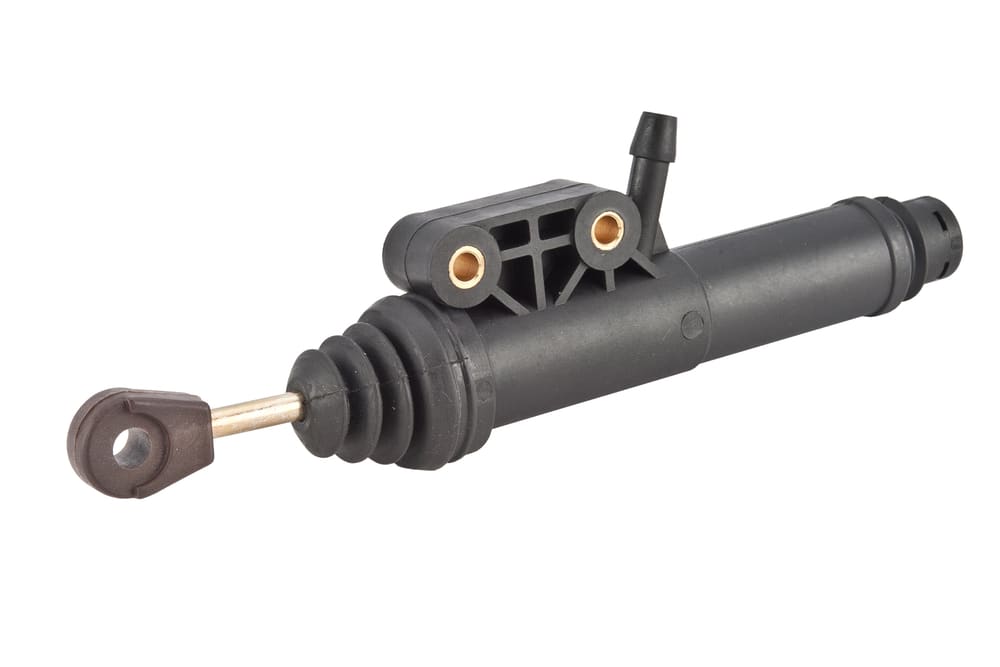

The master cylinder in a manual transmission system functions similarly to the brake master cylinder, and in fact, both systems use brake fluid to lubricate the interior components and provide the pressure necessary to operate the other elements of the mechanism.
The clutch master cylinder contains a “clutch fluid” reservoir, which actually just holds brake fluid. When the clutch is depressed, pistons put pressure on the fluid, which then travels to the slave cylinder, and the pressure in turn allows you to engage the clutch and change gears. When this cylinder goes bad, whether due to wear and tear, clogging, or a leak somewhere in a seal, the transmission will malfunction and this puts your safety at risk.
A few different things can happen when the cylinder is bad. You may experience a spongy-feeling clutch, or the pedal may go to the floor. The clutch may also suddenly engage as you are driving, sending the car lurching forward – this could easily cause an accident. The cylinder should be replaced as soon as the damage is discovered.
When shopping for a new cylinder you want a good balance of durability and price. Because this is such a vital part of your safety while driving, it’s worth a little extra investment.
How to make sure you’re getting a good quality clutch master cylinder
Look for cast steel, rather than extruded aluminum. Cast parts are generally stronger and more reliable.
Choose a trusted name brand for your clutch master cylinder. This is not the time to take chances on an unknown source.
Look for a warranty. Some brands, as well as some sellers, offer warranties – even lifetime – on clutch master cylinders. Calculate the value of price versus the length of warranty to get the right balance for your budget.
If you're still unsure of what to buy, YourMechanic supplies top-quality clutch master cylinders to our certified mobile technicians. We can also install a clutch master cylinder that you've purchased. Click here for a clutch master cylinder replacement.



